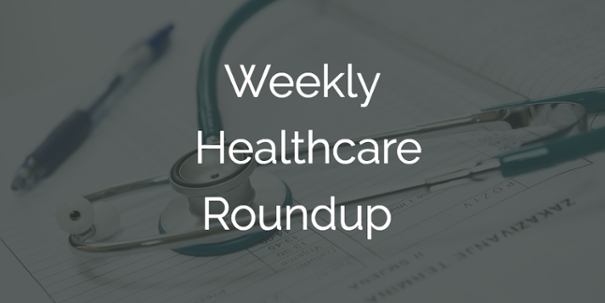Weekly Healthcare Roundup: July 24-30

Weekly Healthcare Roundup: July 24-30 July 29, 2016
This week marked the end of convention season for our two mainstream parties. These conventions prompted discussions on health policy to the national stage. Democrats, who held their convention earlier this week, released a comprehensive plan for what they hope to enact during the next four years. This got us thinking — what will healthcare look like under President Trump or President Clinton?
Here’s what we’re reading: HEALTHCARE UNDER A NEW PRESIDENT-The most evident scenario for healthcare under Trump involves an attempt at repealing the ACA (if his party controls both the House and the Senate) and implementing at least some House Republican proposals. But even conservatives are divided over issues like Medicare restructuring, so it’s quite likely policies won’t change much. As for Clinton, it’s obvious she hopes to expand the ACA but that’ll be nearly impossible if the Republicans retain the House. That’s why observers predict that either candidate would have to use executive powers to put their healthcare policies in place.
FOCUSING ON HIGH-NEED, HIGH-COST PATIENTS – In an article published Wednesday, members of five national healthcare foundations worked together to identify three areas in need of reform to help improve care for patients with multiple chronic conditions. According to the researchers, 5% of the US population can be considered high-need, high-cost and this number will continue to rise as the nation’s population ages.
HEALTHCARE IS MOST AT RISK FOR RANSOMWARE – Healthcare was hit with more ransomware than any other sector in Q2 — 88% of all ransomware attacks occurred in health systems says Solutionary’s Quarterly Threat Report. One reason why health systems may be particularly vulnerable is because there are more entry and pivot points for cybercriminals to exploit since health systems use several different systems and devices. The fact that patient data sells for more money than any other kind of information on the black market might also play a role in the number of attacks.
DIGITAL HEALTH TOOLS AND PATIENT EXPERIENCE – New research shows that nearly 75 percent of patients expressed a high level of interest in accessing their electronic medical records. Contrary to popular belief, the survey also found that of the 1,443 patients studied, Baby Boomers (51-65 years old), not Millennials were the group most likely to use healthcare tools.
WOMEN NEED LESS TESTS, MORE CONVERSATIONS – NPR recently explored whether some women need routine tests like pelvic exams during checkups when there is little scientific evidence to support the efficacy of such tests. However, that doesn’t mean you should skip out on your annual wellness visit with a gynecologist or other family practitioner just yet. The doctors interviewed mentioned the value of having periodic face-to-face discussion with your doctor in order to have conversations that could ultimately improve care outcomes. We couldn’t agree more.
Thanks for being a part of Elation’s community and reading this week’s edition of our weekly news roundup. If you have any submissions or feedback feel free to email us: questions@elationhealth.com
And don’t forget to follow us on Twitter for more healthcare headlines: @ElationHealth
![]()






